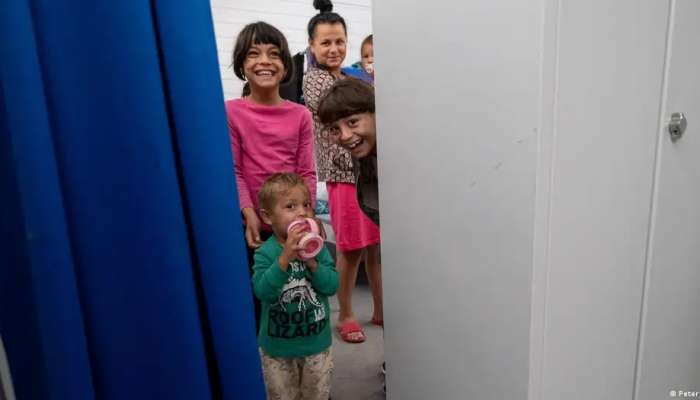
Berlin: Germany’s asylum and migration policies require attention — that’s where almost all of the country’s policymakers agree.
Many municipalities, which are responsible for accommodation and sustenance of refugees, have reached their limit, lamenting a lack of suitable housing and too little funding.
Recently, the German Government had offered municipalities a budget of €1.7 billion ($1.79 billion) in 2024 for accommodation, food and integration purposes — amounting to a real-terms decrease in funding from 2023 levels.
Gerd Landsberg, head of the German Association of Towns and Municipalities, believes this is insufficient. Speaking to German daily “Handelsblatt”, he advocated “more regulation, more limitations, a fair distribution across Europe and sufficient funding for the comprehensive tasks managed by municipalities”.
Aziz Bozkurt, State Secretary for Social Affairs in the city state of Berlin, is among those who organize refugee receptions. Recently, he revealed the current figures for Germany’s capital: compared with the previous year, the number of asylum-seekers in Berlin has increased by almost 32%.
The pressure was enormous, Bozkurt said at the reception center for refugees at the former Tegel airport, but he couldn’t confirm that authorities were overwhelmed — not yet. Up to the end of September, almost 12,000 new asylum-seekers were registered in Berlin, compared with 9,000 throughout the whole of 2022.
The pressure is rising but, in 2015, when large numbers of people especially from Syria and Afghanistan arrived in Germany, the situation was far more serious. According to the Federal Office for Migration and Refugees (BAMF), Berlin alone recorded 33,300 asylum-seekers that year.
Bozkurt is also Acting Head of the State Office for Refugee Affairs (LAF) in the German capital. Recently, some employees had sent him anonymous last-ditch letters, citing “catastrophic conditions.”
Bozkurt told DW: “I won’t hide the fact that my agency is under strain. It’s a difficult situation.” However, if the German Government said there were no additional funds available, the “debt brake” introduced in 2009 had to be reconsidered, and the government would simply have to take on new debts.
But is this going to happen? In any case, Chancellor Olaf Scholz has invited the leader of the opposition, CDU Chairman Friedrich Merz, to a discussion — as it was put — of the many proposals which have recently been dominating political debates in Germany, including a cap on the number of refugees, vouchers replacing cash benefits, and a possible obligation to work for asylum-seekers.
On Wednesday, the government announced a plan to tighten regulations involving asylum-seekers. Interior Minister Nancy Faeser (Social Democrats) wants to facilitate and expedite deportations of migrants without a right to stay in Germany.
All of this takes place in a social climate which sees an increasing number of citizens casting a critical eye on refugee movements towards Germany. According to various polls, a majority is still in favor of upholding the basic right to asylum; however, in a survey conducted by polling institute Civey on behalf of “Focus” magazine 74% of those polled believe that the country has taken in too many people since 2015. 89% called for resolute expulsions, for example of criminals. In practice, this is often complex, since many countries of origin refuse to take people back.
At the Tegel reception center, State Secretary Bozkurt guides visitors through the area with its container accommodations. 4,000 people are already living here, including 3,000 from Ukraine. The asylum procedure does not apply to refugees fleeing from the war in Ukraine. Asylum-seekers here come from Syria, Afghanistan, or Georgia.
Still in October this year, further accommodation for another 2,000 people will be set up; the required construction work has already begun. Bozkurt, himself a member of the Social Democrats, calls it “a small town”; he says it’s a situation which is new to him as well.
Among the refugees are Tanya from Ukraine and Alex from Afghanistan. Both don’t want to give their last names and have only recently arrived at Berlin-Tegel. All in all they feel they’re in good hands, they say. Alex points out that he will not return to his home country under any circumstances: “I was a soldier there, the Taliban would kill me,” he tells DW.
Tanya mentions problems with navigating officialdom, but seems relaxed otherwise. There are also more concerned voices. Yulia from Ukraine lives here with her son. She seems desperate and says that no-one had really been able to help her; she had been here for weeks already, and she was totally overwhelmed by the required administration procedures.
The “Independent Complaints Office” for refugees in Berlin is located several kilometers further south. The tiny agency was established in 2021 and is funded by Berlin’s Senate. It has so far processed 3,500 complaints by refugees, almost half of them in 2023 alone.
The head of the agency, Maike Caiulo-Prahm, told DW: “A high number of refugees means tensions in our accommodation facilities grow. The social and political climates are very tense, too. In addition, 95% of our employees have a migration background themselves and are greatly affected by the situation.”
Advisor Oguz B. adds: “People now have less space, I noticed that. Staff members working in the accommodation facilities and in refugee relief say they’re considerably overworked. And each day, one hears and reads in the media that eventually something has to change. But nothing changes.”
The heated debate on a possible tightening of deportation regulations does nothing to calm the situation. “That’s token politics which helps no-one.” Bozkurt said of the interior minister’s plans.